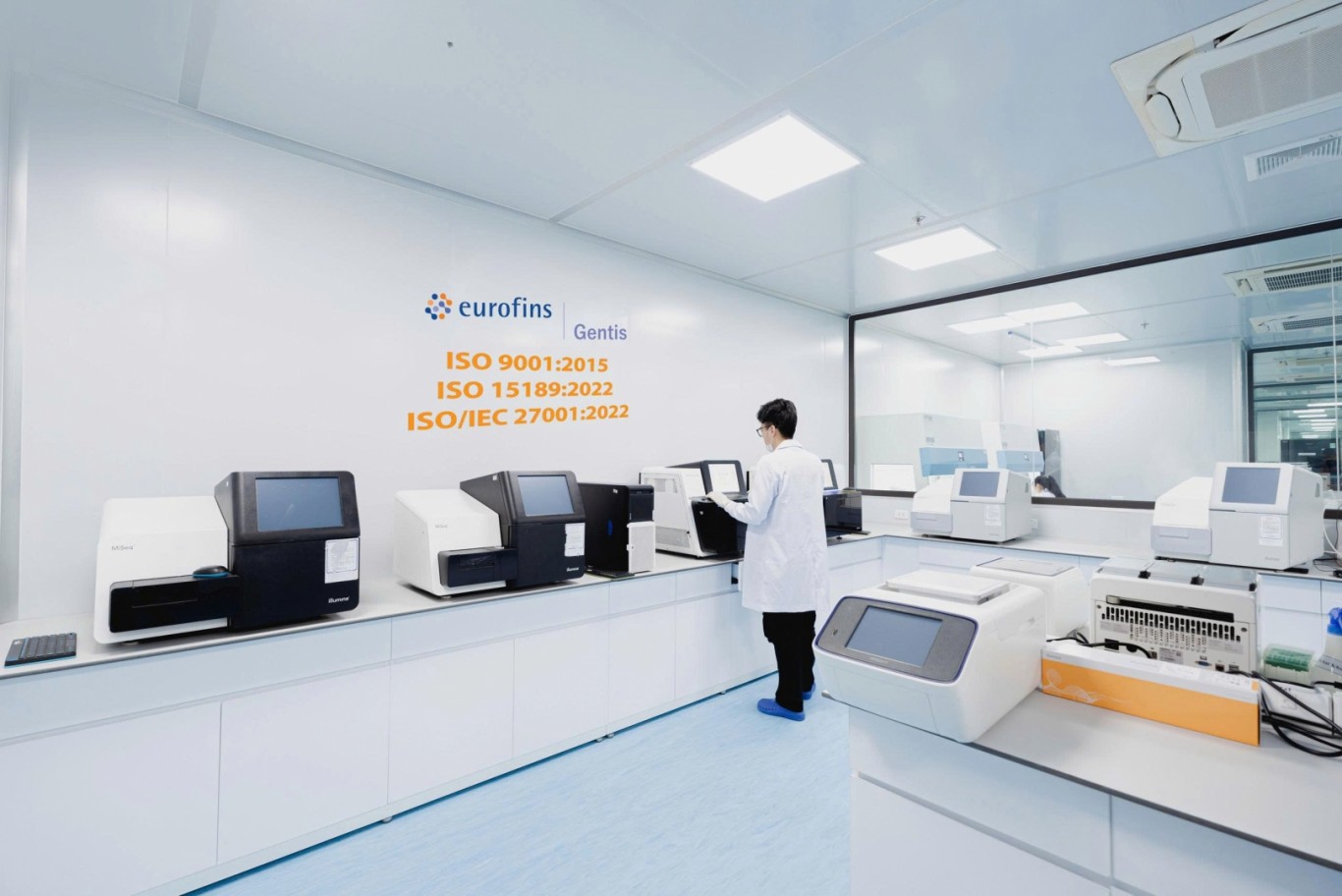 Experts Join the Talkshow “Male Infertility Due to Sperm DNA Fragmentation – Updates on Testing and Treatment”
Experts Join the Talkshow “Male Infertility Due to Sperm DNA Fragmentation – Updates on Testing and Treatment”
The Impact of Sperm DNA Fragmentation on Fertility and Baby Health
Sperm DNA fragmentation not only reduces the chances of conception but can also negatively affect the health and development of the baby. According to Assoc. Prof. Dr. Nguyen Quang (Director of the Andrology Center at Viet Duc Friendship Hospital), when sperm DNA is fragmented, the fertilization process may encounter difficulties, lowering the chances of successful conception. Even if conception occurs, these damages can lead to abnormal embryo development, resulting in early miscarriage or birth defects. Genetic mutations caused by damaged sperm DNA can also disrupt cell division, leading to genetic disorders and abnormalities in fetal development. This may result in serious conditions for the baby, such as genetic disorders, heart diseases, neurological problems, or issues with physical and intellectual growth. Sperm DNA fragmentation also negatively impacts assisted reproduction procedures, increasing the risk of poor embryo development. Therefore, protecting the integrity of sperm DNA is crucial not only for increasing fertility chances but also for ensuring a healthy pregnancy and a healthy baby.
Causes, Factors, and Preventive Measures for Sperm DNA Fragmentation
Each couple may have different underlying health issues contributing to sperm DNA fragmentation. The leading cause is oxidative stress. Oxidative stress occurs when there are too many free radicals in the body, typically due to increased white blood cells from infections or degenerative tissue damage. These free radicals can attack and damage sperm DNA. When sperm DNA is damaged, it may break, reducing fertility and potentially leading to issues such as miscarriage or birth defects. In addition to oxidative stress, varicocele (enlarged veins in the scrotum) is a common cause of sperm fragmentation and infertility in Vietnam. Other factors such as environmental pollution, smoking, alcohol, an unhealthy diet, stress, and unhealthy sexual practices also contribute to sperm DNA fragmentation, as shared by Assoc. Prof. Dr. Nguyen Quang.
To prevent and treat sperm DNA fragmentation, men can adopt lifestyle changes and medical treatments. Maintaining a healthy diet rich in antioxidants from vegetables, fruits, and nutritious foods can help reduce oxidative stress. Regular exercise and avoiding harmful habits like smoking and drinking alcohol will support sperm health. Moreover, limiting exposure to harmful environmental factors such as chemicals, pollution, and high temperatures is also important. According to MSc. Dr. Dinh Huu Viet (Head of the Andrology Department at Hanoi Andrology and Infertility Hospital), if necessary, medical treatments such as antioxidant supplements, vitamin C and E, or medical interventions like surgery, IVF, and ICSI can help improve sperm quality and increase fertility chances. Therefore, choosing a reputable and quality testing center is crucial to ensuring successful reproductive support. One such center is GENTIS. With 15 years of experience in genetic testing and reproductive support, modern equipment, and a team of experts, GENTIS offers high-quality services and accuracy, helping many couples achieve their dream of parenthood.
Methods for Testing Sperm DNA Fragmentation Levels
 Assoc. Prof. Dr. Nguyen Quang, MSc. Resident Doctor. Vu Thu Huong, and MSc. Dr. Dinh Huu Viet
Assoc. Prof. Dr. Nguyen Quang, MSc. Resident Doctor. Vu Thu Huong, and MSc. Dr. Dinh Huu Viet
To assess the extent of sperm DNA fragmentation, advanced testing methods are increasingly used to support the diagnosis of male infertility. For assessing sperm DNA fragmentation levels, there are both direct and indirect testing methods. Among the common direct methods are the Tunel Assay and Comet Assay. MSc. Resident Doctor Vu Thu Huong (Genetics Specialist at GENTIS) explains: The Tunel Assay helps assess the level of fragmentation in each sperm cell by using DUTP to bind to the broken DNA segments. However, this method is complex and lacks standardization between laboratories. The Comet Assay also visually observes sperm DNA fragmentation under a microscope, but this test is subjective and time-consuming, making it more commonly used in research.
In addition to direct tests for sperm DNA fragmentation, indirect tests that are widely used today include Halo Sperm and SCSA. The Halo Sperm test evaluates sperm DNA fragmentation by observing the HALO ring after lysing proteins and applying a specific dye. However, the results are subjective as this test is also assessed under a microscope and highly dependent on the technician performing the test and the specialist analyzing the results, leading to less accuracy and quantification compared to SCSA.
SCSA is considered the most advanced and widely used sperm DNA fragmentation test in clinical practice today, addressing most of the drawbacks of the aforementioned tests. This method is also used to assess sperm DNA fragmentation at GENTIS. The SCSA test evaluates sperm DNA fragmentation levels using an automatic flow cytometry system to measure fluorescence signals. The method is highly accurate, fast, and automated, analyzing thousands of cells automatically, ensuring high reliability and reproducibility. This helps provide precise information on sperm DNA fragmentation levels, which is then shared with the doctor to guide treatment plans for the patient. Thanks to the outstanding advantages of SCSA testing and a team of experienced specialists and technicians, GENTIS has successfully provided valuable test information to doctors, contributing to the happiness of many couples hoping to conceive.











